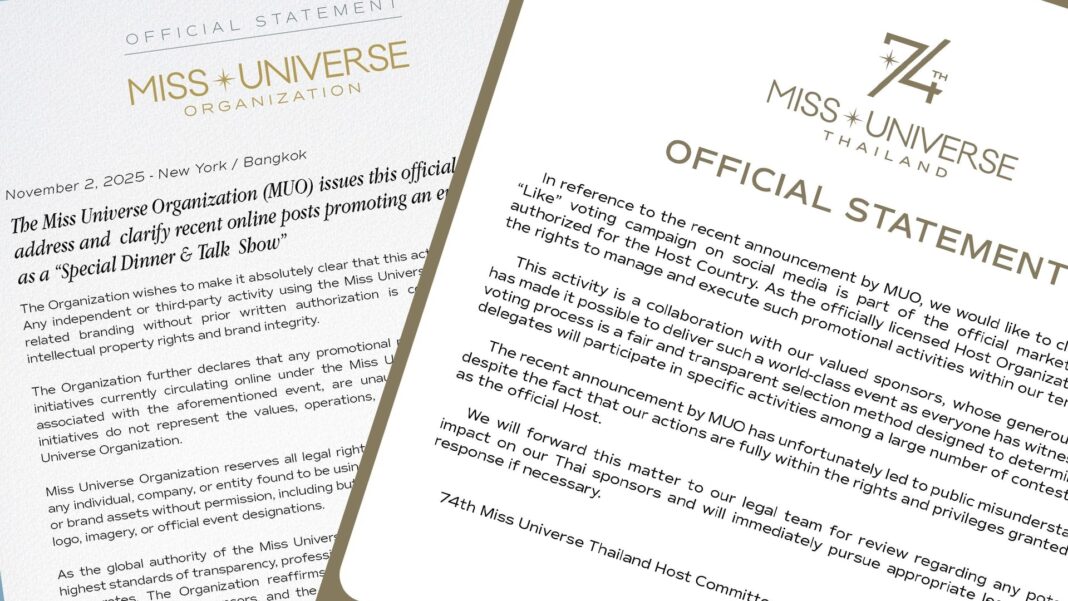A rare and public disagreement has emerged between the Miss Universe Organization (MUO) and Miss Universe Thailand (MUT) after both parties released official statements offering conflicting explanations about the legitimacy of recent online promotions and voting campaigns.
The dispute came to light on November 2, 2025, when MUO—headquartered in New York and Bangkok—issued an advisory distancing itself from an event being advertised online as a “Special Dinner & Talk Show.” The organization clarified that the said activity was not sanctioned by MUO, emphasizing that any independent use of its name, logo, or trademarks without prior written authorization violates its intellectual property rights.
Reaffirming its commitment to maintaining brand integrity, MUO reminded the public that all official announcements, events, and voting activities are communicated exclusively through verified Miss Universe platforms.
However, only a few hours later, the 74th Miss Universe Thailand Host Committee released a statement contradicting MUO’s advisory. The Thai organizers asserted that the ongoing “Like voting campaign” on social media was, in fact, an official part of their approved marketing and promotional activities. According to the statement, MUT, as the licensed host organization, possesses the right to manage and execute local promotional efforts within Thailand under the terms of its agreement with MUO.
The committee described the confusion as a result of a “public misunderstanding” triggered by MUO’s announcement. It further assured the public that all its actions fall “fully within the rights and privileges granted” to the host committee, adding that the campaign was transparent, fair, and involved multiple contestants. The statement also noted that MUT’s legal team would review the issue to safeguard the reputation of its local sponsors and partners.
The exchange of statements has since sparked speculation about internal friction between MUO’s global management and its Thai franchise partner. Industry observers point out that this clash exposes the ongoing challenge of balancing MUO’s centralized brand oversight with the operational independence of its licensed hosts—especially in an era when digital engagement and sponsorship activations play a crucial role in pageant marketing.
As of this writing, neither MUO nor MUT has issued a joint clarification. Analysts believe this dispute could trigger a broader review of franchise agreements, particularly around digital campaigns, sponsorship rights, and public communications.
Once renowned for celebrating beauty, empowerment, and cultural exchange, the Miss Universe platform now faces a test of coordination, transparency, and mutual trust between its global and local entities—an issue that could shape the future of how the pageant is managed worldwide.


